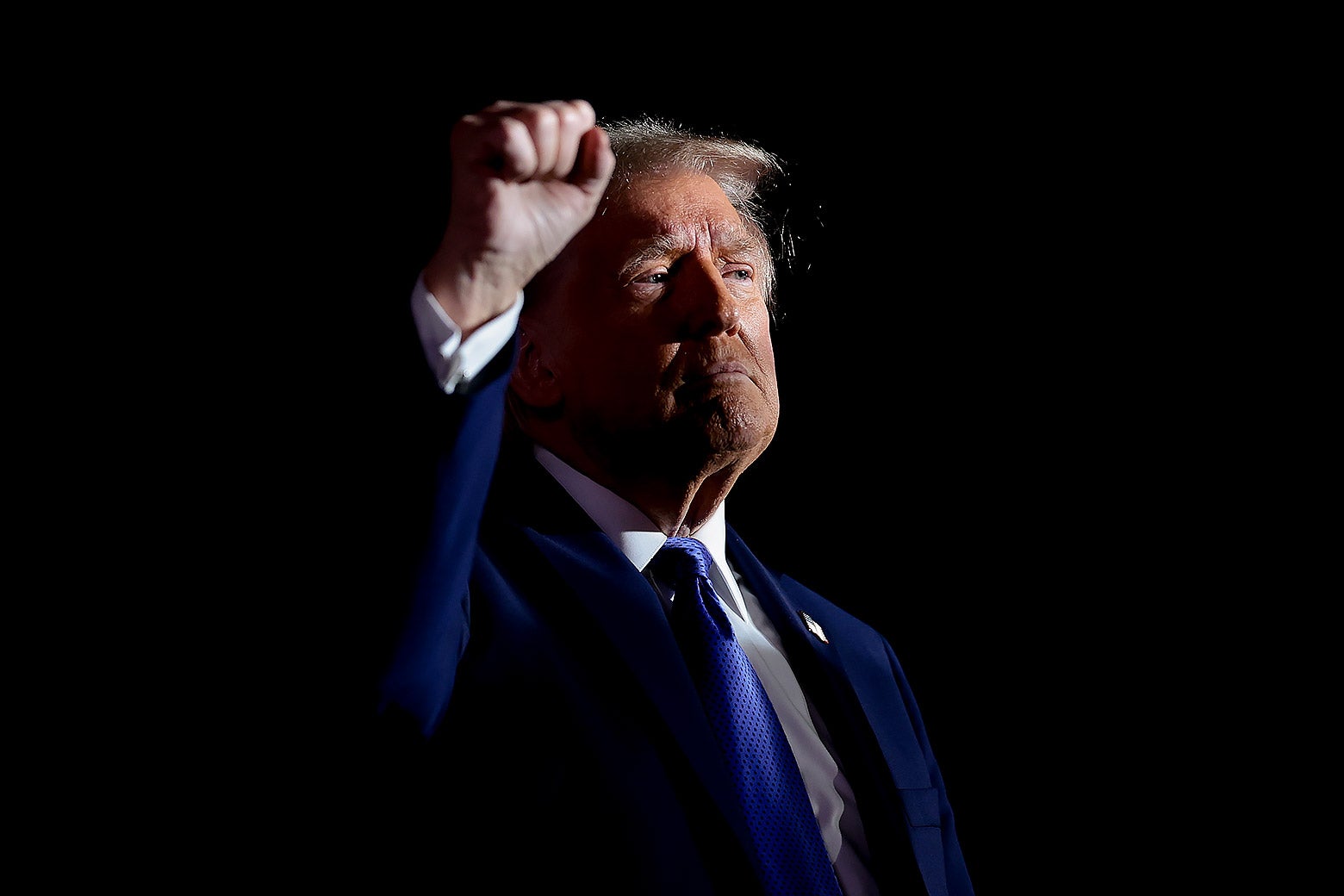On Tuesday, the New York Times published a long interview with Donald Trump’s former chief of staff John Kelly, who Googled an online definition of fascism before saying of his former boss:
Certainly the former president is in the far-right area, he’s certainly an authoritarian, admires people who are dictators—he has said that. So he certainly falls into the general definition of fascist, for sure.
Also on Tuesday, the Atlantic published a report that Trump allegedly said, “I need the kind of generals that Hitler had.”
The revelations have dominated discussions on Fox News, and prompted two-dozen GOP senators to call for Tr—haha, just kidding.
Instead, Democrats and their supporters once again contend with a muted reaction from the media, the public, and politicians, who seem unmoved by Trump’s association with the F-word, no matter how many times Kamala Harris says “January sixth.”
One exception was Matt Drudge, the archconservative linkmonger who has been hard on Trump, who ran a photo of the Führer himself. This proved the rule, argued Times (and former Slate) columnist Jamelle Bouie: “genuinely wild world where, on trump at least, matt drudge has better news judgment than most of the mainstream media.”
Debates about Trump and fascism have been underway for a decade now, and applying the label seems unlikely to convince or motivate anyone. But the lack of alarm underlines a deeper question that doesn’t require a dictionary to engage in: Why do so few Americans, including many on the left, seem to take seriously the idea that Trump would use a second presidency to abuse the law to hurt his enemies?
Maybe it’s because Democrats have studiously avoided confronting Trump about some of the most controversial, damning policy choices of his first term, or the most radical campaign promise for his second. You simply can’t make the full case against Trump—or a compelling illustration of his fascist tendencies—without talking about immigration. Immigration was the key to Trump’s rise and the source of two of his most notorious presidential debacles, the Muslim ban and the child separation policy. Blaming immigrants for national decline is a classic trope of fascist rhetoric; rounding our neighbors up by the millions for expulsion is a proposal with few historical precedents, and none of them are good…



Fascism doesn’t stick to Trump … because all media keep a painting him as a sensible, reasonable, acceptable politician that has no ties to fascism.
If media from day one had kept hammering the fact that Trump is a far right politician with far right tendencies that will usher in far right ideology … he wouldn’t have become as popular as he is now.
The uncomfortable truth is that far too many people are entirely comfortable with a far-right agenda and rhetoric. Especially if it gives them permission to look down on someone else.
Also poor political education has people thinking of fascism as 1) some almost mythological evil far removed from modern sensibilities, and 2) a problem of the past. Neither is true.
Yes but only as far as it goes with rhetoric. Like it’s on TV.
When it gets real many will wonder what happened.
Yep.
The part about lacking political education also means fascists are commonly identified as those who start world wars and drag people into gas chambers. Which is reversed to naively argue they can’t be fascist before that point. Disregarding that this is of course not how the nazis started out either.
It’s like they just want to win the game without thinking about what the game is.